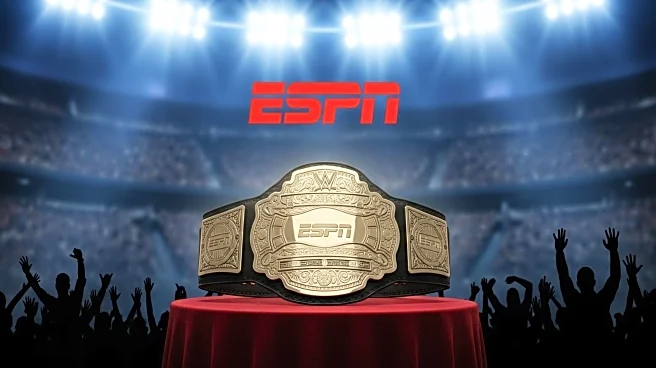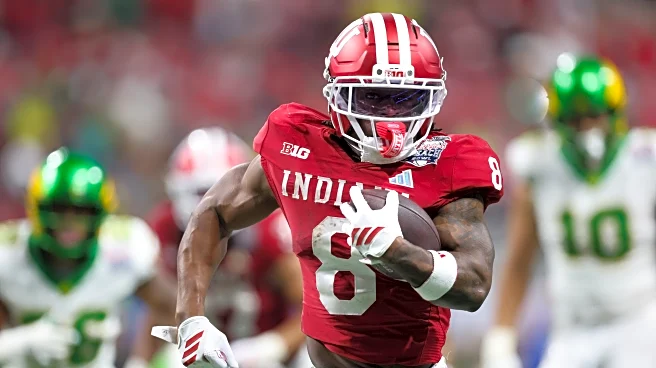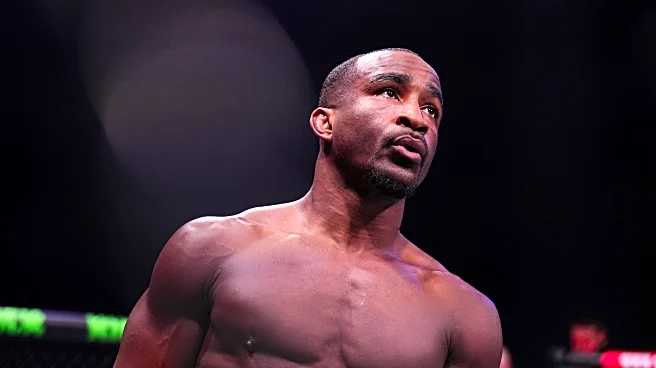What's Happening?
Pro wrestling, traditionally operating on the fringes of mainstream sports and entertainment, is experiencing a significant shift. WWE has successfully debuted on ESPN, marking a milestone in its efforts to integrate into mainstream media. This development is part of WWE's long-term strategy to elevate its presence and credibility within the broader sports and entertainment landscape. Historically, pro wrestling has seen sporadic crossover moments, such as Hulk Hogan's ventures into television and film, and the involvement of celebrities like Dennis Rodman and Mike Tyson during the Monday Night Wars. However, these instances were often fleeting and did not lead to sustained mainstream acceptance. The current integration of WWE talent into ESPN programming signifies a new era where pro wrestling is gaining recognition and legitimacy alongside traditional sports.
Why It's Important?
The inclusion of WWE on ESPN represents a pivotal moment for the pro wrestling industry, potentially altering its perception and marketability. This mainstream acceptance could lead to increased viewership, sponsorship opportunities, and broader cultural impact. For WWE, this move enhances its brand visibility and positions it as a legitimate player in the sports entertainment sector. The shift may also influence other wrestling promotions to seek similar partnerships, thereby expanding the industry's reach. Fans of pro wrestling stand to benefit from increased access to content and a more diverse representation of the sport in mainstream media. Additionally, this development could attract new audiences who previously viewed wrestling as niche entertainment, thereby broadening its demographic appeal.
What's Next?
As WWE continues to integrate into mainstream media, further collaborations with major networks and platforms are likely. This could lead to expanded programming, including live events and exclusive content tailored for broader audiences. The success of WWE's partnership with ESPN may encourage other sports networks to explore similar ventures, potentially leading to a competitive landscape for wrestling content. Stakeholders within the industry, including wrestlers, promoters, and advertisers, will need to adapt to this evolving environment, focusing on innovation and audience engagement. The long-term impact of this mainstream breakthrough will depend on WWE's ability to maintain its momentum and capitalize on new opportunities for growth and expansion.
Beyond the Headlines
The mainstream acceptance of pro wrestling raises questions about its cultural significance and the evolving nature of sports entertainment. As wrestling becomes more integrated into traditional sports media, it may challenge existing perceptions and stereotypes associated with the industry. This shift could lead to a reevaluation of wrestling's role in popular culture, influencing how it is portrayed and consumed. Additionally, the increased visibility of wrestling may spark discussions about its artistic and athletic merits, potentially leading to greater appreciation and respect for the craft. The industry's ability to navigate these cultural dynamics will be crucial in shaping its future trajectory.











